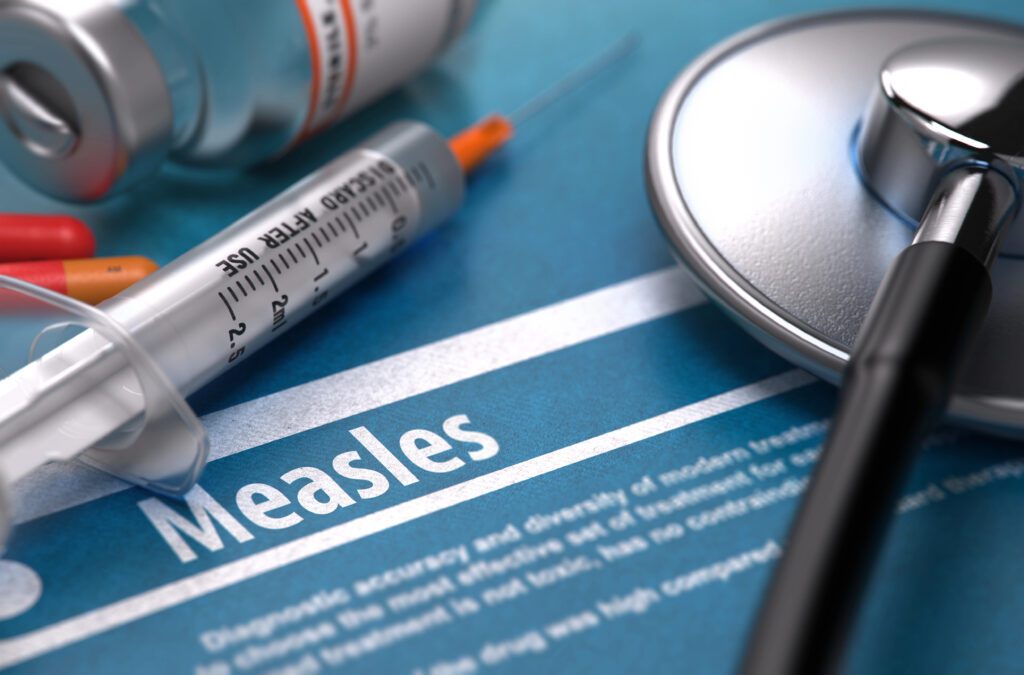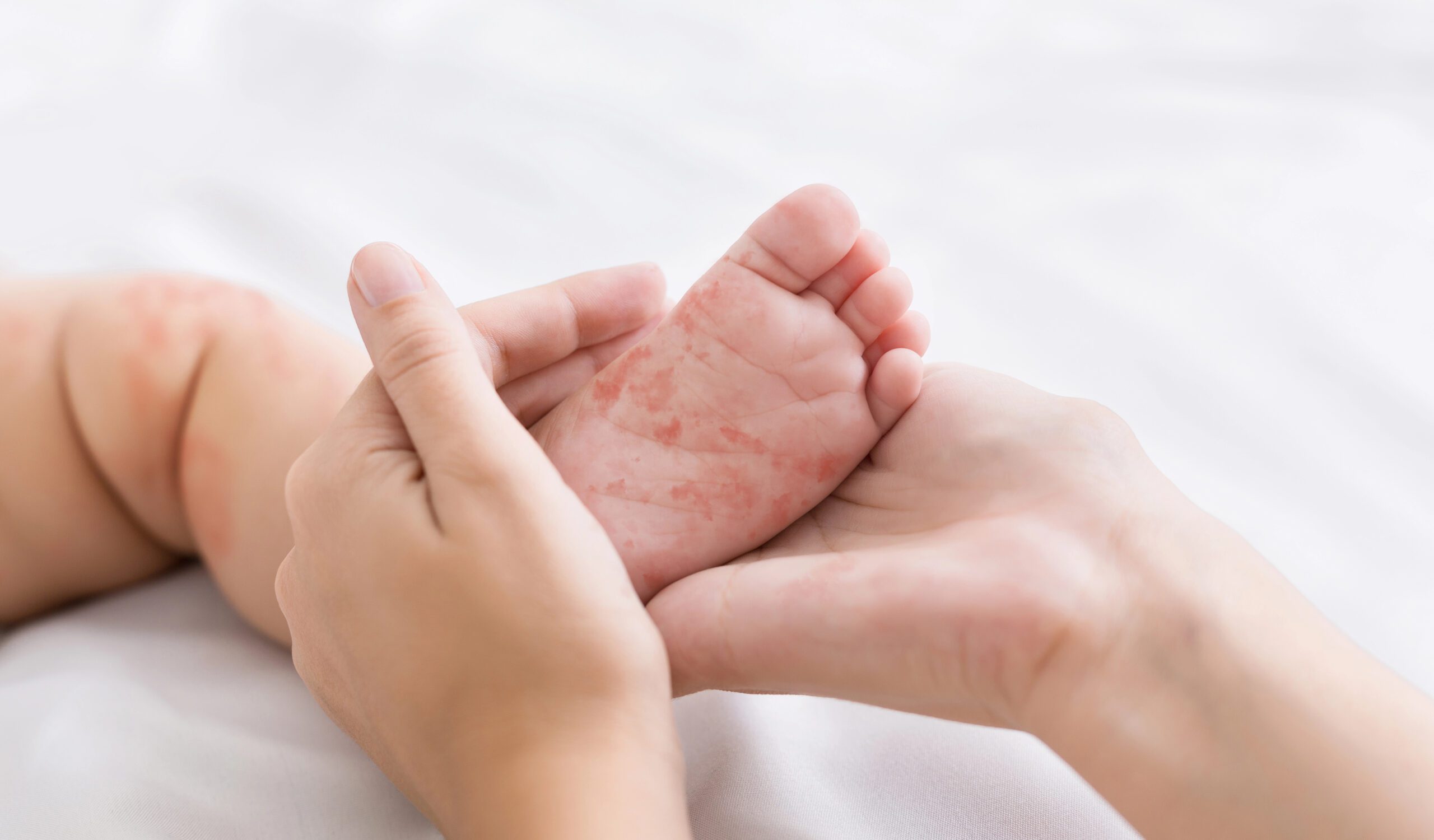Understanding the 2025 Measles Outbreak: Protecting Your Newborn in McKinney
Measles is making a comeback, and the 2025 outbreak has raised alarms across many communities, including McKinney, Texas. As of March 2025, 259 cases have been reported across Texas, making it the epicenter of the outbreak. The CDC has also confirmed over 1,000 cases nationwide, the highest in nearly a decade.
As a parent or caregiver, you may be wondering how to keep your newborn safe during this health scare. Fortunately, there are plenty of strategies you can adopt to ensure your little one is protected from this highly contagious disease.
In this blog, we’ll break down everything you need to know about the 2025 measles outbreak, how it affects newborns, and the steps you can take to safeguard your baby during this time.
What Is Measles, and Why Is It Dangerous?
Measles is a viral infection that spreads rapidly through respiratory droplets when an infected person coughs or sneezes. It is incredibly contagious, and it can stay in the air for up to two hours after an infected person leaves the room. Although measles can be a mild illness for some, it is especially dangerous for newborns, young children, and individuals with weakened immune systems.
The symptoms of measles usually begin with fever, cough, runny nose, and red, watery eyes. A few days later, a rash appears, typically starting on the face and spreading to other parts of the body. In some cases, measles can lead to serious complications, such as pneumonia, brain inflammation (encephalitis), and even death.
The 2025 Measles Outbreak in McKinney: What’s Happening?
As of 2025, McKinney, Texas, has seen an uptick in measles cases, alarming local health officials and the general public. The outbreak has spread through both urban and suburban areas, and health authorities are urging residents to take extra precautions, especially parents of newborns.
The increase in measles cases has been attributed to several factors, including:
- Decline in Vaccination Rates: Some individuals have become hesitant about vaccinating, leading to lower immunity within communities.
- Increased International Travel: Measles is still widespread in other parts of the world, and international travelers can unknowingly bring the virus back to the U.S.
- False Misinformation: With so much information online, some people have been misled about the safety and effectiveness of vaccines.
While the risk is manageable for vaccinated individuals, the same cannot be said for babies under the age of 12 months. Newborns are too young to receive the measles, mumps, and rubella (MMR) vaccine, leaving them vulnerable to exposure. As a result, protecting your newborn from measles in McKinney has never been more important.
Why Are Newborns So Vulnerable to Measles?
Newborns and infants under the age of one are at an increased risk of contracting measles because they cannot receive the MMR vaccine until they are older—usually at 12 to 15 months of age. This delay in vaccination leaves babies exposed to diseases like measles that can have severe consequences.
Complications of measles in infants can include:
- Pneumonia: A potentially life-threatening lung infection.
- Encephalitis: Brain swelling that can result in long-term neurological damage.
- Dehydration: Caused by high fever and a decrease in appetite.
- Death: In extreme cases, measles can be fatal, particularly in infants and children under 5 years old.
Given the severity of the disease and the fact that babies are so vulnerable, it’s crucial to take extra precautions to keep your newborn safe during this outbreak.
How Can You Protect Your Newborn from Measles?

While your newborn cannot be vaccinated yet, there are plenty of strategies you can implement to ensure they stay safe from the measles outbreak in McKinney. Here are several key steps to follow:
1. Ensure Everyone Around Your Baby Is Vaccinated
The most effective way to protect your newborn is to ensure that everyone in close contact with your baby is up to date on their vaccinations, particularly the MMR vaccine. This includes:
- Immediate Family: Make sure that parents, siblings, and extended family members are vaccinated.
- Caregivers: Any nannies, babysitters, or daycare workers should be vaccinated as well.
- Visitors: If someone plans to visit your home, ask them to verify that their vaccinations are up to date before interacting with your baby.
This concept is known as herd immunity, which helps protect individuals who cannot be vaccinated, like newborns, by reducing the overall spread of disease.
2. Limit Exposure to Crowded Places
During the measles outbreak, it’s important to avoid places where large groups of people gather. Measles can spread easily in public spaces, such as:
- Shopping malls
- Supermarkets
- Public transportation
- Entertainment venues
While you might not always be able to avoid crowds, try to minimize the time your baby spends in these environments, especially in the midst of the outbreak.
3. Monitor for Symptoms
Keep a close eye on your newborn for any signs of illness. Measles often starts with flu-like symptoms, including fever, cough, and runny nose, followed by the appearance of a rash. Early detection can help ensure timely treatment and prevent further complications.
If you notice any of these signs, contact your pediatrician right away. Don’t wait—early intervention is key to preventing severe illness.
4. Practice Good Hygiene
Hygiene is one of the most effective ways to prevent the spread of measles and other contagious diseases. Encourage regular handwashing for everyone in your household, especially if they’ve been outside or in contact with public places.
Here are some good hygiene practices to follow:
- Wash hands thoroughly with soap and water for at least 20 seconds.
- Use hand sanitizer if soap and water aren’t available.
- Disinfect high-touch surfaces, such as door handles, light switches, and remote controls, frequently.
- Avoid touching your baby’s face, particularly their eyes, nose, and mouth.
5. Stay Updated and Informed
Make sure you are aware of any new developments in the measles outbreak in McKinney. Follow updates from trusted sources like:
- McKinney Health Department
- Centers for Disease Control and Prevention (CDC)
- World Health Organization (WHO)
By staying informed, you’ll be able to respond quickly to any changes or developments that may affect your baby’s safety.
6. Consider a Maternity or Parenting Group
Joining a local parenting or maternity group in McKinney can help you stay connected with other parents and get real-time updates about the outbreak. These groups often provide valuable resources and tips on how to protect your baby during an outbreak.
Why Vaccination Is Crucial for Everyone

Vaccination remains the most effective way to prevent measles and protect those who are most vulnerable, including newborns. Even though your baby can’t receive the vaccine yet, you can help ensure their safety by vaccinating everyone around them.
The MMR vaccine is safe, effective, and widely available. The CDC recommends that all children receive their first dose of the MMR vaccine at 12 to 15 months and a second dose at 4 to 6 years old. If you or anyone in your family hasn’t been vaccinated, now is the time to schedule an appointment with your healthcare provider.
Conclusion
The 2025 measles outbreak in McKinney highlights the importance of vaccination and vigilant health practices. While newborns cannot receive the MMR vaccine until they are older, there are still many ways to protect them from this dangerous disease. Ensuring that everyone around your baby is vaccinated, avoiding crowded areas, practicing good hygiene, and staying informed are all crucial steps in keeping your little one safe.
At Entirely Kids Pediatrics, we are committed to providing expert guidance and care to help protect your child from measles and other preventable illnesses. Our dedicated pediatricians are here to answer your questions, provide up-to-date information, and ensure your baby gets the best possible care.
If you’re a parent in McKinney, don’t wait—take action today to prevent measles from affecting your little one. Your child’s health is our priority, and we’re here to support you every step of the way.
Stay safe, stay informed, and be proactive. For expert advice on measles prevention and vaccinations, contact Entirely Kids Pediatrics today.

